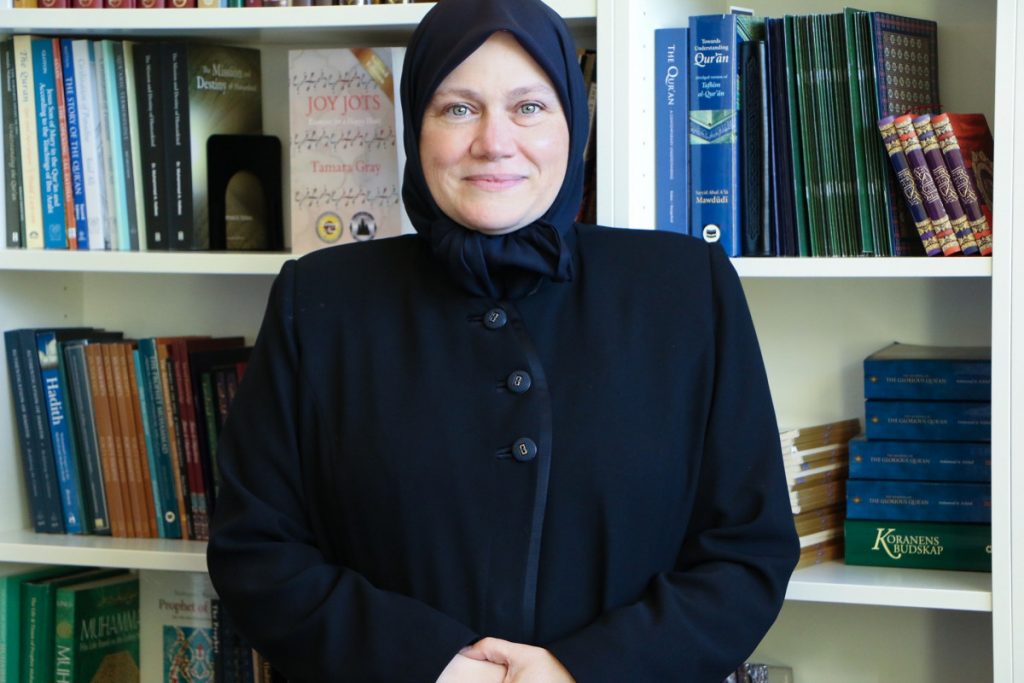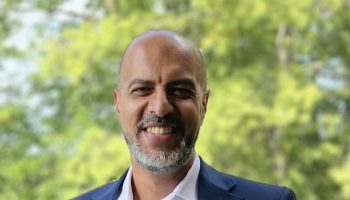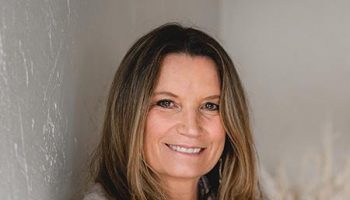
Kaitlyn Finchler
Contributing Writer
While people of different faiths may think there’s too many differences between themselves and others who don’t share the same beliefs, too many obstacles to overcome in order to find commonalities, this isn’t always the case. There might even be more connectivity than they realize.
Tamara Gray — founder of Rabata, an organization dedicated to promoting positive cultural change through creative educational experiences — will speak at 2 p.m. today in the Hall of Philosophy for the Week Eight Interfaith Lecture Series theme, “Compassionate, Merciful: Describing the Nature of God,” highlighting some of this connectivity and commonality.
“I’m hoping to address the real philosophical issues that are original to Muslim thought,” Gray said.
But, she intends to do so practically, “maybe even have some metaphors with superheroes, Marvel comics and DC comics,” thrown into the mix.
The philosophical discussions of God in this context are how to categorize descriptions of God and how early Muslim scholars bring those descriptions together in a way that helps the lay person understand who God is, Gray said.
“I want to address this issue that is, I think, a natural human question,” she said. “Which is, why do bad things happen to good people? Why are there natural disasters? … Why do these things happen if we’re talking about a God who is all-controlling?”
In Islam there is a concept called “irada,” which essentially means free will; Gray said people can’t talk about and understand God fully until they unpack and think about what the human impact or human touch is in the world.
“How much are we responsible, and where does that free will go?” Gray said. “If I am terrible to the environment, is it God’s responsibility to clean that up so that there isn’t a tsunami? … Or are we then dealing with the repercussions of our own actions?”
For example, Gray said this is comparable to someone in a terrible car accident questioning if it’s God’s doing, or if it’s the free will of the person who had road rage.
“Hope and optimism are a really important part of how we have a beautiful life,” she said. “When we have pessimism and despair, two people can live the same (or) very similar lives — one with pessimism and despair, and one with hope and optimism. The happy one has hope and optimism even in the midst of trials.”
How one understands God impacts how much hope and optimism they have, Gray said. For example, if she only had other humans to take care of her or respond to her, she doesn’t know “that I could be hopeful and optimistic.”
“It’s a critical subject and in a very, very secular world, I think it’s really important to talk about the impact (of) the presence of God, or God’s role in our world and who is God,” Gray said. “Even if we’re looking at that from many different perspectives, … it will help us get away from the very limitations that human beings have and be able to move into (a) more hopeful, optimistic state of being — which will make our lives better individually and then in the community, as well.”
As a self-proclaimed practical and pragmatic person, Gray said she hopes the Chautauqua audience can take home practical tips of ways to ask themselves questions — maybe to rethink or relook at difficulties they may be facing.
“I also hope that they can have a new window into Muslim thinking,” Gray said. “A lot of Islamic stuff, when people talk about Islam, is really surface (level), especially interfaith gatherings and things like this. … I’m really hoping they come with even just a new perspective that Muslims are much deeper than we’re usually presented as.”
Gray said Muslims are often categorized as legalistic, with “very surface (level) presentation,” and hopes the audience will realize how deeply Muslims have thought about these issues and some of the solutions they’ve brought forth.
To engage with people of other faiths, Gray said she hopes Muslims will learn to dive deeper, beyond the surface, when they want to talk about their faith. For those who are not Muslims, she said it’s important for each person of a different faith to attend a lecture like this “ready to learn the depths” of that group of people and how they’re thinking.
“That will help us engage in the conversation of where we are similar,” Gray said. “Every human being lives in a Venn diagram with other human beings and we need to find out where we are overlapping. This is going to make us, as human beings, close to one another, more understanding of one another and able to live with one another in ways that are not just ‘kumbaya.’ ”
It’s crucial to understand the overlap between people and faiths, and to see that overlap as a source of comfort, she said.
“That’s a big cultural change for us,” Gray said. “We really can become people who don’t look at each other as others, but understand that we’re all together in this world.”




